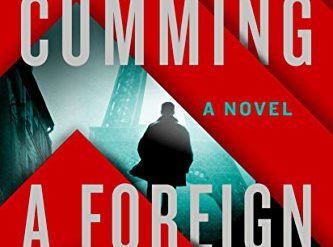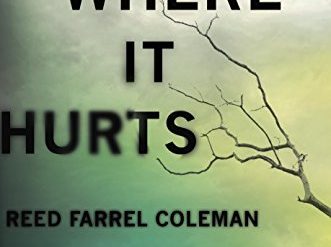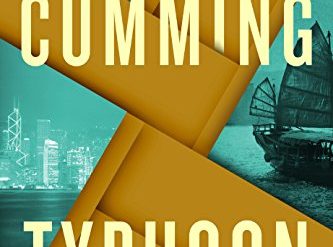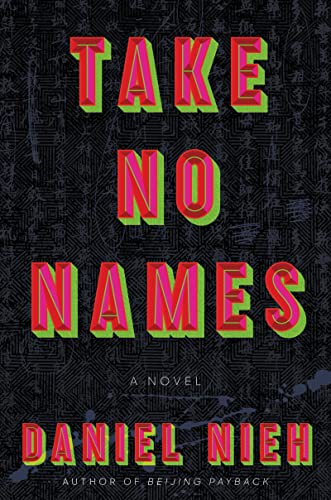
Check this out: Two fugitives on the run, intent on the biggest score they’ve ever pulled off. A Mexican cartel. A mammoth Chinese state-owned company. The world’s second largest airport under construction. And the rarest gems ever discovered. They all figure in Daniel Nieh’s propulsive new thriller, Take No Names. If anything, it’s even more of a roller-coaster ride than Nieh’s impressive debut, Beijing Payback.
Estimated reading time: 4 minutes
Fugitives on the run to Mexico
Victor Li, the young Chinese-American protagonist of Beijing Payback, is the principal figure in Take No Names as well. In the earlier story, he witnessed his father’s murder at the hands of Sun Jianshui, the old man’s former protegé. But Sun fled, leaving Victor to face a murder charge. Now he’s on the run, washing dishes in a Chinese restaurant in Seattle under an assumed name. Then an ex-soldier named Mark Knox enters the scene and enlists him in a clever scheme to rob a US Government warehouse of possessions surrendered by undocumented workers deported overseas. And the stakes rise alarmingly in the warehouse when Victor chances upon a rare, four-carat gem many times more valuable than diamond. At which point the warehouse manager discovers their caper, Mark kills him in self-defense, and they’re forced to flee together to Mexico.
Take No Names by Daniel Nieh (2022) 304 pages ★★★★☆

A thriller that unfolds at a breakneck pace
In fact, Mexico is more than a convenient destination for the fugitives. Because Victor found information from the stone’s owner pointing to a buyer in Mexico City that will offer nearly a quarter-million dollars for the gem. It’s painite, after all, which are the world’s rarest gems. They’re worth $50,000 to $60,000 per carat on the market to those few buyers who will touch them. (Painite is found only in Myanmar and is therefore a conflict gem.) However, connecting with the buyer proves to be a lengthy and dangerous process. Once Victor and Mark make contact, they find themselves caught up in international intrigue involving China, the US, and the Mexican government. And the pair is forced to undertake what seems to be a suicide mission together with Victor’s nemesis, Sun Jiangshui. Together, they must insert themselves inside a Chinese government-owned company in Mexico City and insert malware into its servers. The future doesn’t look bright for the boys.
Using foreign languages to make the story more believable
Nieh’s linguistic skills show clearly in Take No Names. The Mexican Spanish that runs throughout the novel is idiomatic, and Nieh obviously commands knowledge of Mandarin expressed both in pinyin (the Roman alphabet) and Chinese characters. (In his acknowledgments, he discloses that he had help on both counts, but it’s obvious they had to build on a solid base.) Nieh is himself a linguist who earns his living as a translator. When other authors sprinkle foreign language expressions in writing fiction, it’s often distracting. More often than not, such practices as throwing in untranslated French phrases seems pretentious. Here, though, the use of Chinese and Spanish comes across as natural and necessary.
About the author
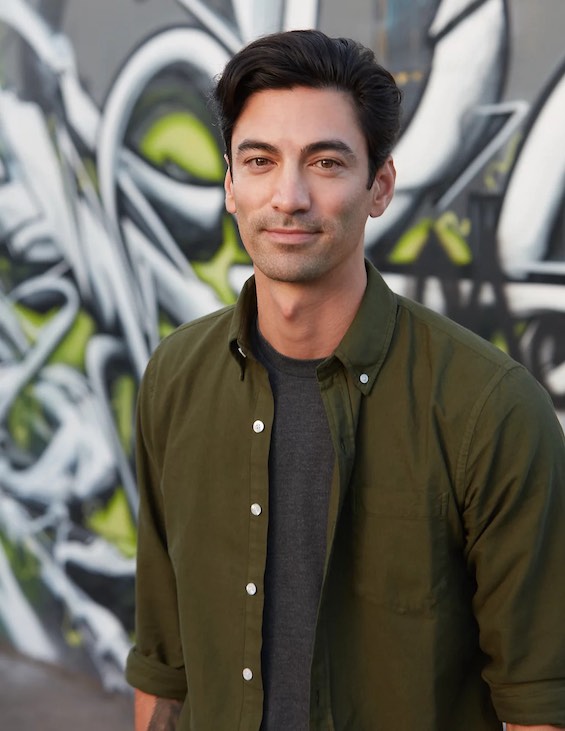
Daniel Nieh is the author of two thrillers and is a professional translator. He served as an interpreter at the 2008 Beijing Olympics and also works as a contract linguist for the US Department of State. Nieh grew up in Portland, Oregon, and has lived in China, Japan, Singapore, Mexico, the Netherlands, and the United Kingdom. He studied Chinese Literature at the University of Pennsylvania and the School of Oriental and African Studies, University of London. Does he own, or has he even seen, one of the world’s rarest gems? Seems unlikely.
For more reading
I’ve also reviewed the author’s earlier novel, Beijing Payback (Dirty money from China is at the root of this thriller).
You might also enjoy my posts:
- Top 10 mystery and thriller series
- 20 excellent standalone mysteries and thrillers
- 30 outstanding detective series from around the world
- Top 20 suspenseful detective novels
- Top 10 historical mysteries and thrillers reviewed here
And you can always find my most popular reviews, and the most recent ones, plus a guide to this whole site, on the Home Page.

